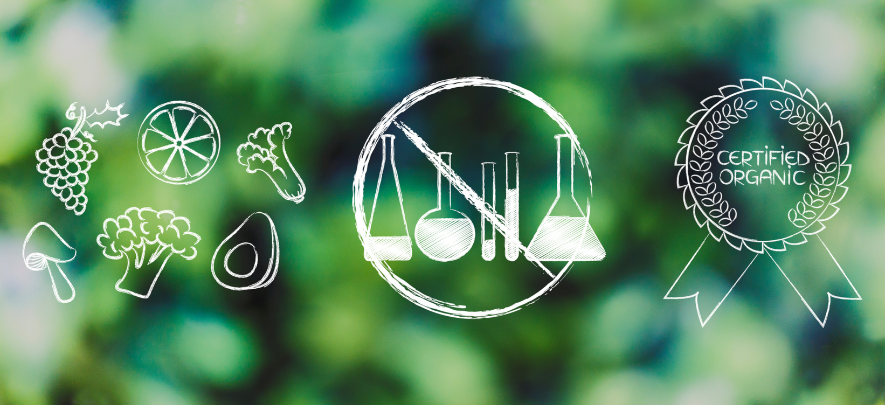A Chemical-Free Future: A Global Scenario for Sustainable Business

Environment
47 week ago — 5 min read
The world is witnessing a growing consciousness towards health and environmental well-being. Consumers are increasingly seeking products –edible and non-edible– that are free from harmful chemicals. This shift in consumer behavior is shaping the future of businesses, propelling a new era of innovation and sustainability.
Drivers of the Chemical-Free Movement
Several factors are fueling the demand for chemical-free products:
1. Health Concerns
Public awareness about the link between synthetic chemicals and health problems like allergies, hormone disruption, and even cancer is rising. Consumers are actively seeking alternatives to safeguard themselves and their families.
2. Environmental Impact
Concerns about the detrimental effects of chemicals on ecosystems and pollution are driving a shift towards sustainable practices. Consumers are opting for products that minimize their environmental footprint.
3. Transparency and Regulation
Regulatory bodies are enacting stricter regulations on the use of harmful chemicals in products. Additionally, consumers demand greater transparency from brands regarding ingredients and production processes.
The Evolving Landscape of Edible Products
The food industry is experiencing a significant transformation towards chemical-free solutions. Here are some key trends:
- Organic and Biodynamic Farming: Organic farming practices prioritize natural methods, eliminating the use of synthetic pesticides and fertilizers. Biodynamic agriculture takes it a step further, emphasizing soil health and biodiversity.
- Clean Label Movement: Consumers are drawn to products with simple, recognizable ingredients. "Clean label" products typically avoid artificial flavors, colors, preservatives, and sweeteners.
- Rise of Plant-Based Alternatives: Concerns about animal welfare and the environmental impact of meat production are driving the popularity of plant-based meat and dairy substitutes. These products often rely on natural ingredients, attracting consumers seeking chemical-free options.
Innovation in Non-Edible Products
The demand for chemical-free options extends beyond food. Businesses in various sectors are innovating to meet this growing need:
- Natural Cleaning Products: Consumers are increasingly opting for natural cleaning solutions made with plant-based ingredients and essential oils, reducing exposure to harsh chemicals.
- Sustainable Personal Care Products: Personal care products are undergoing a transformation with a focus on natural and organic ingredients. Consumers seek chemical-free options for everything from cosmetics to soaps and shampoos.
- Biodegradable and Sustainable Materials: The use of biodegradable and sustainable materials like bamboo and recycled plastics is gaining traction across various industries. This reduces reliance on chemicals used in production and disposal.
Challenges and Opportunities for Businesses
Transitioning to chemical-free products presents challenges. Developing effective and affordable alternatives and ensuring product shelf life can be complex. However, the opportunities are vast:
- Brand differentiation: Businesses that champion chemical-free products can stand out in a crowded marketplace, attracting a loyal customer base.
- Premium pricing: Chemical-free products often command a premium price point, allowing businesses to potentially increase profits.
- Building trust and transparency: Clear communication about ingredients and production processes is crucial for building trust with consumers who prioritize chemical-free choices.
The Road Ahead: Collaboration and Continuous Innovation
The shift towards a chemical-free future requires collaboration across the supply chain. Research and development efforts to create effective and cost-competitive alternatives are essential. Additionally, government regulations that incentivize sustainable practices and discourage the use of harmful chemicals will play a crucial role.
Consumers' desire for chemical-free products is undeniable. Businesses must adapt and innovate in order to thrive in this evolving landscape. By embracing sustainability and prioritizing the well-being of consumers and the environment, businesses can ensure a successful future in the chemical-free world of tomorrow.
Also read: Importance of World Environment to Small & Medium Enterprises (SMEs)
To explore business opportunities, link with me by clicking on the 'Invite' button on my eBiz Card.
Image source: Canva
Disclaimer: The views and opinions expressed in this article are those of the author and do not necessarily reflect the views, official policy or position of GlobalLinker.
View Rajesh 's profile
Most read this week












Comments
Share this content
Please login or Register to join the discussion